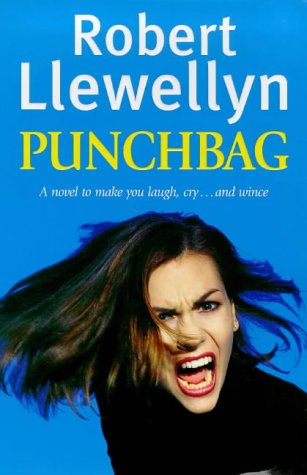 OK, so I’m both pleased and nervous to be doing this review. Let’s deal with the pleased bit first. This is the one of a rare group that I’m calling “Bus-ticket Books”. That’s because I have a few books that I bought back in the late nineties and, as was my custom in those days, read on the bus every day into work. I have at least a couple of these that I never finished at the time and still have the bus-ticket bookmark. OK, I can only think of two that actually have the tickets, this is one and The Man in the High Castle by Philip K. Dick which I read a few years ago. I didn’t blog about it except in passing (“what the hell was that about?” being the sum total of my review). Nevertheless I rather like the fact that a) I still have this little random artifact of a decade or so ago and that b) I actually have finally finished the book concerned.
OK, so I’m both pleased and nervous to be doing this review. Let’s deal with the pleased bit first. This is the one of a rare group that I’m calling “Bus-ticket Books”. That’s because I have a few books that I bought back in the late nineties and, as was my custom in those days, read on the bus every day into work. I have at least a couple of these that I never finished at the time and still have the bus-ticket bookmark. OK, I can only think of two that actually have the tickets, this is one and The Man in the High Castle by Philip K. Dick which I read a few years ago. I didn’t blog about it except in passing (“what the hell was that about?” being the sum total of my review). Nevertheless I rather like the fact that a) I still have this little random artifact of a decade or so ago and that b) I actually have finally finished the book concerned.
Now the nervous bit: I want to review this book but I want to sidestep as much as I can getting too much into the issue(s) that it’s clearly about. Not because they’re not worth discussing or I haven’t got anything to say about them but just so this post stays at a reasonable length. I guess we’ll see.
Punchbag is about something called Full-Force Self Defence. What’s that? Well let me explain with an anecdote from the book that I presume is at least based on a real case: a female black-belt karate champion was brutally raped in her own home. When she was attacked, despite having the skills to defeat her attacker she freezes. The reason being, so the theory goes, that she’s never been trained to use these skills for real – she’s used to hitting and kicking thin air or pulling punches with partners or very controlled circumstances. So this new form of self defence is based on getting a man in a padded suit to attack women who are then taught how to defend themselves using ‘full force’ i.e. not holding anything back.
So, the novel follows a few characters but the main one is Nick who is a London based bouncer who becomes the first British “padded assailant” when a Californian company that run these classes decides to open a branch in the UK. What we get in this book is an exploration of so many different attitudes and aspects of male-female relationships, violence, feminism, sexuality – and Llewellyn certainly doesn’t shy away from any of these areas. In fact if anything he throws too much in at the risk of over-complicating the plot.
So I think Llewellyn walks a line here between a novel that is clearly issue-led and an extended piece of propaganda. I think he walks very close to that line, crosses it a couple of times but overall it is still a novel, it has a story, with characters who have their own motivations and drives. However there was atendency in this book that worried me whilst I was reading it – the fact that whilst he allows his characters to have all shades of different, including very unpleasant and un-PC opinion, ultimately the main characters seem to always revert to a the “proper” attitude and not always with any discernable reason other than the passing of some time.
He also doesn’t shy away from asking questions about this form of self defence. Is it encouraging women to be overly violent? Could they perhaps be being given a false sense of security? Is it an over-reaction or form of vigilantism? (A man in the book is hospitalised over what, in the individual incident, was a relatively minor form of harrassment.) It’s good that he doesn’t try to answer these questions definitively but I think we sort of know where his sympathies lie.
Judged as a book I did like it. I particularly liked getting inside the head of Nick where we were allowed to experience a range of thoughts and emotions including some “unacceptable” ones which whilst unpleasant are real and without which the characterisation would have felt false. I also think if you wanted to raise the issues of male-female violence then this is a book that makes you think.
7/10 – thought-provoking, sometime uncomfortable and ultimately enjoyable read.





